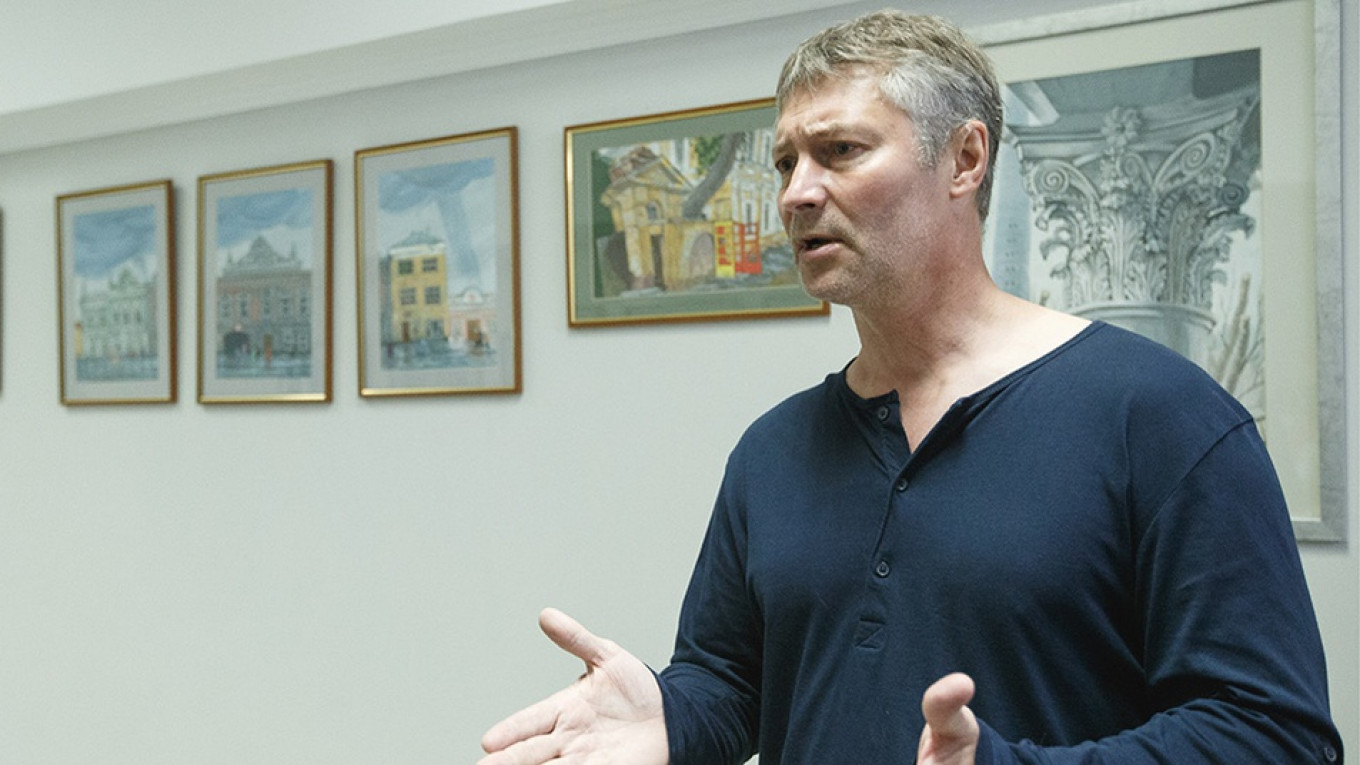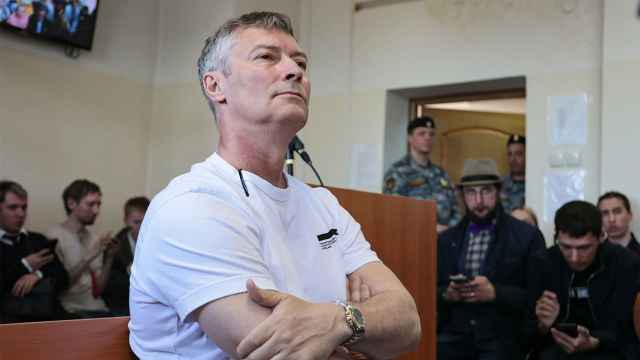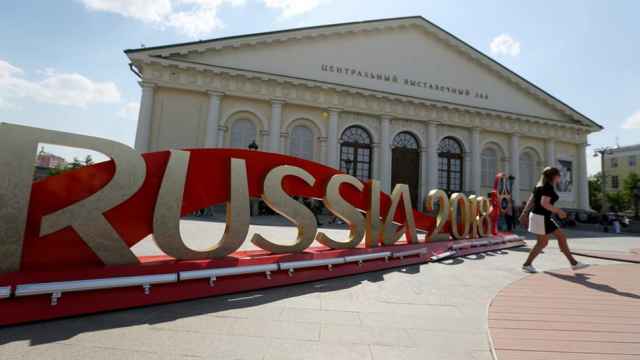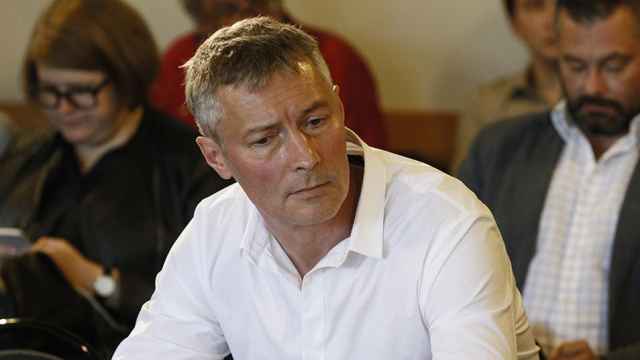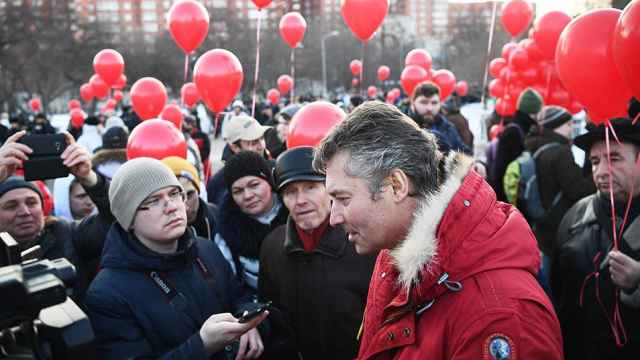Yevgeny Roizman looked refreshed. “I’ve never not worked this long in my entire life,” the recently retired mayor of Yekaterinburg said.
In Moscow last week to visit friends, talk to publishers about a possible memoir and plan several art exhibitions (history, he reminded me, was his first love before politics), Roizman also made some time to chat in a large apartment overlooking Chistiye Prudy in central Moscow. Dressed in blue jeans and a royal blue T-shirt with the words “no pain, no gain” printed across the chest, he talked about the pros and cons of the World Cup and what will follow.
Nearly two months ago, on May 25, Roizman resigned in protest over a decision to scrap direct mayoral elections in Yekaterinburg, Russia’s fourth-largest city. Now, only nine Russian cities elect their own mayors. It is a trend of shrinking local democracy that Roizman, who has long been critical of the country’s ruling United Russia party, described as one of the country’s “most serious” problems.
“It’s easier to control people who are poor and beaten up than those who are prosperous and free,” he explained.
But the World Cup has given Russians a taste of freedom, Roizman admitted. Over the past five weeks, while hosting the international football tournament, restrictions — gathering in large groups, drinking in public — have been loosened. “There have been positive moments for our citizens,” Roizman said, even if the World Cup was just one “big PR project for the government.” “They have seen life colored with bright paints for the first time.”
His native Yekaterinburg, one of the 11 World Cup host cities, became the setting for an unusual “exchange of cultures,” with Roizman recalling his own conversations with Panamanian, Japanese and Uruguayan fans, among others.
It is easier to control people who are poor and beaten up than those who are prosperous and free.
More surprisingly, Russians were free to go out into the streets and “be joyous” after their team’s victories against Egypt and Spain. And he celebrated that, for the past several weeks, there had seemed to be a pause in the “angry propaganda” — a constant drumbeat that makes people feel like they’re living “surrounded by enemies.”
“A lot of people have seen that this country can be completely different,” he said. Still, Roizman believes the freedoms will have been short-lived and that they will vanish soon after the World Cup final on Sunday. After that, the “screws will be tightened.”
The reason is pension reforms, Roizman said, an issue that has been bubbling to the surface throughout the World Cup and one that all Russians have paid close attention to, even if it has slipped under the radar of foreign visitors. Announced on the eve of the World Cup, the government called for retirement ages to be raised past many people’s life expectancy.
More than 2.76 million people have since signed an online petition against the decision, and President Vladimir Putin, whose fourth term has only just begun, has seen his approval rating fall steeply: Over the course of a single week in June, it dropped from 72 to 63 percent, according to the state-funded VTsIOM pollster. (Putin was also conspicuously absent from Russia’s matches following its opener against Saudi Arabia.) And in advance of Russia’s upset of Spain in the round of 16 on July 1, Russians across the country protested the reforms.
“We have a very serious problem with our aging population, we are having a tough time with our economy and at the same time we are spending too much money on wars in Ukraine and Syria and PR projects like the Olympics and the World Cup,” Roizman said. “So we are seeing a lot of budget cuts, including in education, healthcare and now the pension fund.”
While Roizman thinks the budget cuts are necessary, he regrets that the authorities have excised popular will from their decision-making. One of the side-effects of this, he says, is that the government has no other option than forcing the people to accept its decisions. Which, he predicted, means they will return to curtailing free speech and clamping down on any street protests.
Once the World Cup trophy has been lifted on Sunday and the foreign fans depart, Roizman believes Russians will see their short-lived joy leave too. “This will all start soon after the World Cup,” he said. “Any thinking person can already clearly see that we are going down this path.”
Evan Gershkovich is a reporter at The Moscow Times. The views expressed in opinion pieces do not necessarily reflect the position of The Moscow Times.
A Message from The Moscow Times:
Dear readers,
We are facing unprecedented challenges. Russia's Prosecutor General's Office has designated The Moscow Times as an "undesirable" organization, criminalizing our work and putting our staff at risk of prosecution. This follows our earlier unjust labeling as a "foreign agent."
These actions are direct attempts to silence independent journalism in Russia. The authorities claim our work "discredits the decisions of the Russian leadership." We see things differently: we strive to provide accurate, unbiased reporting on Russia.
We, the journalists of The Moscow Times, refuse to be silenced. But to continue our work, we need your help.
Your support, no matter how small, makes a world of difference. If you can, please support us monthly starting from just $2. It's quick to set up, and every contribution makes a significant impact.
By supporting The Moscow Times, you're defending open, independent journalism in the face of repression. Thank you for standing with us.
Remind me later.



